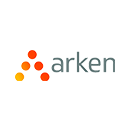Whereas a Will enables people to make express decisions to let other people administer their property after they have died, sometimes it is desirable to give binding instructions while still living in order to establish in advance control of what will happen in relation to property or physical care should mental or physical capacity become significantly impaired to the extent that decisions cannot be made independently.
A Lasting Power of Attorney (LPA) appoints a trusted person (the attorney) to act on behalf of another person (the donor). The donor must have capacity to make the LPA and can revoke it at will while he or she retains capacity. An LPA can deal with a person’s property but can also deal with their wishes concerning their health and welfare. There are, however, situations where a person will want to make more direct, specific and legally binding instructions directly to their medical professional – and in this situation, they would need to make an Advance Decision (AD).
Arken.legal (UK) Ltd has just added Advance Decisions to its range of estate planning documentation as Samantha Warner, Senior Legal Advisor at Arken, explains:
“A large number of Arken users have contacted us over the last 6 or 7 months asking if we would produce an Advance Decision as their clients have requested them. As always at Arken, we have expanded on the original request and we now offer different options within an Advance Decision and have added the opportunity for them to work in tandem with LPAs, cover organ donation and specifically for pregnant women”.
Users of Arken can now access Advance Decision as part of their user subscription and can choose from 4 different types of AD:-
- General Advance Decision: a decision not to prolong life unnecessarily where there is no prospect of recovery or to give treatment where the burdens outweigh the benefits, but to receive palliative care;
- Advance Decision Defining an Intolerable Condition: specifies that if a person is suffering from particular conditions, they do not wish to receive life sustaining treatment;
- Advance Decision Defining Maximum Treatment: specifies that a person wishes to be kept alive no matter what the treatment or chances of recovery; and
- Advance Decision Specifying Treatment Preferences: specifies the treatments that may be given if there is a chance of improvement and recovery and treatment preference if the prognosis is terminal.
Arken also allows for instructions to be given in respect of organ donation, with notes of any family sensitivities to this to be taken into account. It is possible to specify next of kin details (and substitute next of kin) with full contact details so that it is simple to contact people in the case of emergency. It is a highly practical document, allowing people to specify exactly which medical professionals that they wish to have involved in their care, together with contact details so that giving effect to the wishes contained in the document is more likely to be possible in life or death situations.
Women making Advance Decisions may wish to consider the situation where they become ill or injured with no chance of recovery but are pregnant. Arken allows for the creation of an Advance Decision that provides for treatment to be given to allow for the safe delivery of the child but is to come into effect thereafter. Most eventualities can be covered by the Advance Decision questionnaire, but to the extent that a person wishes to make further specific instructions that are not covered by the standard set of questions, there is an easy free-type box to address any further matters.
Samantha continues:
“Advance Decisions are a really good option for those concerned about their future medical needs, and we are really pleased to provide this for our clients. They can produce an Advance Decision in minutes within Arken and this document type sits well alongside Wills, LPAs, Expression of Wishes and Severance of Joint Tenancy options.”
This article was submitted to be published by Arken.legal as part of their advertising agreement with Today’s Wills and Probate. The views expressed in this article are those of the submitter and not those of Today’s Wills and Probate.



















